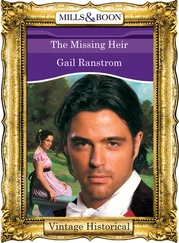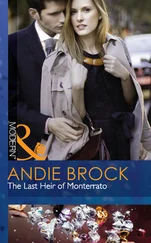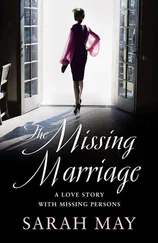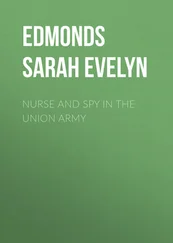Sarah Macnaughtan - Peter and Jane; Or, The Missing Heir
Здесь есть возможность читать онлайн «Sarah Macnaughtan - Peter and Jane; Or, The Missing Heir» — ознакомительный отрывок электронной книги совершенно бесплатно, а после прочтения отрывка купить полную версию. В некоторых случаях можно слушать аудио, скачать через торрент в формате fb2 и присутствует краткое содержание. Жанр: foreign_prose, foreign_antique, на английском языке. Описание произведения, (предисловие) а так же отзывы посетителей доступны на портале библиотеки ЛибКат.
- Название:Peter and Jane; Or, The Missing Heir
- Автор:
- Жанр:
- Год:неизвестен
- ISBN:нет данных
- Рейтинг книги:3 / 5. Голосов: 1
-
Избранное:Добавить в избранное
- Отзывы:
-
Ваша оценка:
- 60
- 1
- 2
- 3
- 4
- 5
Peter and Jane; Or, The Missing Heir: краткое содержание, описание и аннотация
Предлагаем к чтению аннотацию, описание, краткое содержание или предисловие (зависит от того, что написал сам автор книги «Peter and Jane; Or, The Missing Heir»). Если вы не нашли необходимую информацию о книге — напишите в комментариях, мы постараемся отыскать её.
Peter and Jane; Or, The Missing Heir — читать онлайн ознакомительный отрывок
Ниже представлен текст книги, разбитый по страницам. Система сохранения места последней прочитанной страницы, позволяет с удобством читать онлайн бесплатно книгу «Peter and Jane; Or, The Missing Heir», без необходимости каждый раз заново искать на чём Вы остановились. Поставьте закладку, и сможете в любой момент перейти на страницу, на которой закончили чтение.
Интервал:
Закладка:
He was away for eighteen months, beyond the reach of letters and telegrams for the greater part of the time; and during his absence Mrs. Ogilvie, whose health for some months had been feeble, went to her native land of Spain for warmth and sunshine, travelling by sea to Lisbon for the sake of the voyage. From her Spanish mother she had inherited a property at Granada, and it was from there that she was able to write and tell her husband that she was the mother of a son. Colonel Ogilvie was in an inaccessible region when that event happened, and it was not until he was on his return journey home that he heard the good news. Two years later another child, Peter, was born; and, ardently as her firstborn had been desired, Mrs. Ogilvie showered by far the greater part of her affection upon the younger child. Everything had to give way to Peter, and she resented that even such baby privileges as a child of tender years can receive were bestowed upon the elder son and heir. Her health gave cause for anxiety for some time after Peter was born, and her mental state and the condition of her nerves accounted for the partiality which she showed for her younger child.
The colonel, however, was always a little jealous for the fair-haired boy who had come to his mother while he was far away; and by his will, which he made at this time, he secured an almost extravagant provision for Edward. He could well-nigh forgive his nephews now for their obtrusive existence in the world, and he settled down to enjoy his property with the happy knowledge that he had two fine sturdy boys to whom to leave it. He was still in the prime of life, and not all the dangers and privations which he had suffered seemed to have undermined his splendid constitution. But a drive home in an open dogcart, after; speaking in an overheated hall at a political meeting, brought on a chill and pneumonia of which very suddenly he died. His loss was sincerely and deeply regretted in a neighbourhood where he was both admired and loved for his many good qualities, and a monument in Culversham parish church tells of his excellence as a landlord and his intrepid courage as an explorer.
Mrs. Ogilvie's health being still precarious, she went abroad for the winter after her husband's death to look into some matters concerning her own property, and to try to court health in the sunny vine-growing country. And there, in a little remote Spanish village by the sea which she loved to visit, little Edward Ogilvie, the elder of the two children, died; and not until six years later did Mrs. Ogilvie return to England. To all outward seeming she was as emotionless and reserved as she had ever been, and she spoke no word of her double sorrow and her irreparable loss. Her love for her remaining child never showed itself in caresses, and was not even discernible in her speech; but in spite of her reserve there was an undefined feeling in most people's minds that Mrs. Ogilvie idolized her son. Of the two who were dead no one ever heard her speak. Whatever she thought of them seemed to be buried in her heart as deeply as though that heart had been their graves. And there remained only cheery, popular Peter Ogilvie, with his mind as open as the day, and not a secret upon his soul, and with as much reserve as a schoolboy, to inherit the fortune which a prince might have envied, and a property which was unique in a county rich in beautiful houses.
The gardens of Bowshott were the admiration of the countryside, and Mrs. Ogilvie rarely entered them. The picture gallery was visited by foreigners from every part of the world. Mrs. Ogilvie frequently showed the works of the great masters herself, strolling along the polished floor of the gallery, and telling the story of this picture and that with the inimitable grace of manner which was vaguely resented by her country neighbours, delighting the distinguished foreigners who came to see the pictures. She herself hardly ever glanced at the old masters for her own pleasure; although full of technical knowledge on the subject she had no love of art. It used to weary her when she had to listen to enthusiasm, generally only half-sincere, about her Botticellis or her Raphaels. Music never stirred her, and she regarded the society of the country neighbourhood where she lived with a sense of uncomprehension which she sometimes found difficult to conceal.
'Why were such people born?' she used to say to herself at the sight of some rural gathering. On the rare occasions when she went to a party she was always the first to leave; boredom seemed to overtake her before she had been anywhere very long. Entertainments, so-called, were horribly wearisome to her, and she never for an instant believed those people who professed to have enjoyed a pleasant party. Parties were all stupid, she thought; just as most people were stupid, and most food was badly cooked. Therefore, why meet in somebody else's most probably hideous room, and eat impossible dishes and talk to impossible people? Her own chef had been famous even in Paris, and every evening, according to the custom of the house, an extravagant menu was prepared, at which, when she was alone, she hardly glanced.
Mrs. Ogilvie discussed all things in heaven or earth with a baffling lightness, turned philosophy into a witty jest and made a sort of slang of classical terminology. Amongst a clever set in London she reigned supreme when she chose; but a false note or a pose offended her immediately, and the poseur or the insincere person would generally receive one of her exquisite snubs which cut like acid into tender skins. The pretentiousness of the so-called cultured set was a vulgarism in the eyes of this woman who could be rude with the air of a princess, and could give a snub as some people offer a compliment. Inferior persons sometimes wondered how she had a friend left. To be popular, they argued, one had to be civil, whereas Mrs. Ogilvie was often daringly disagreeable. There was indeed something almost fine in her splendid disdain of the civility of the so-called popular person. She could wound; but she did it with the grace of a duellist of old days, who wiped his rapier with a handkerchief of cambric and lace when he had killed his opponent, and would probably expect a man to die as he himself would die, with a jest on his lips and a light laugh at the flowing blood. Mrs. Ogilvie slew exquisitely, and she never hated her opponent. She smiled at enthusiasm and thought it bizarre and rather delightful; but towards vulgarity, especially in its pompous form, she presented her poniard-point sharply tipped and deadly. 'Why should people take themselves seriously?' she would say, with a shrug of her shoulders. 'Surely, we are a common enough species!' And then the green-grey eyes would narrow themselves in their shortsighted way, and Mrs. Ogilvie's voice, charmingly refined and well-bred, would with a few words lightly prick the falsely sentimental and self-inflated wind-bag of oratory that had presented its unprotected surface to her shaft.
Towards religion her attitude was the well-bred one. She took off her hat to it, as a gentleman removes his hat in church whatever his creed may be. Her own beliefs were as daring and as nearly as possible uninfluenced by outward opinion or by the accepted systems as it is possible for a creed to be. She never tried to force them upon any one else; possibly she did not believe in them herself sufficiently to wish to do so; but like her queer gowns and her dyed red hair her creed suited Mrs. Ogilvie. There was a congruous incongruity about her which set many people puzzling to find out her real character. Pompous persons and snobs detested her. Stupid or vapid people saw nothing in her, or saw merely that she dyed her hair and was dressed by Paquin. Narrow-minded people disapproved of her, and clever people considered her one of the most striking, if not one of the most agreeable personalities of the day. Women hardly ever understood her; but they respected any one who dressed as well as she did, and they had an undeclared admiration for a woman who could hold so lightly possessions which they believed to be all-important, and which Mrs. Ogilvie seemed to find so trivial.
Читать дальшеИнтервал:
Закладка:
Похожие книги на «Peter and Jane; Or, The Missing Heir»
Представляем Вашему вниманию похожие книги на «Peter and Jane; Or, The Missing Heir» списком для выбора. Мы отобрали схожую по названию и смыслу литературу в надежде предоставить читателям больше вариантов отыскать новые, интересные, ещё непрочитанные произведения.
Обсуждение, отзывы о книге «Peter and Jane; Or, The Missing Heir» и просто собственные мнения читателей. Оставьте ваши комментарии, напишите, что Вы думаете о произведении, его смысле или главных героях. Укажите что конкретно понравилось, а что нет, и почему Вы так считаете.












